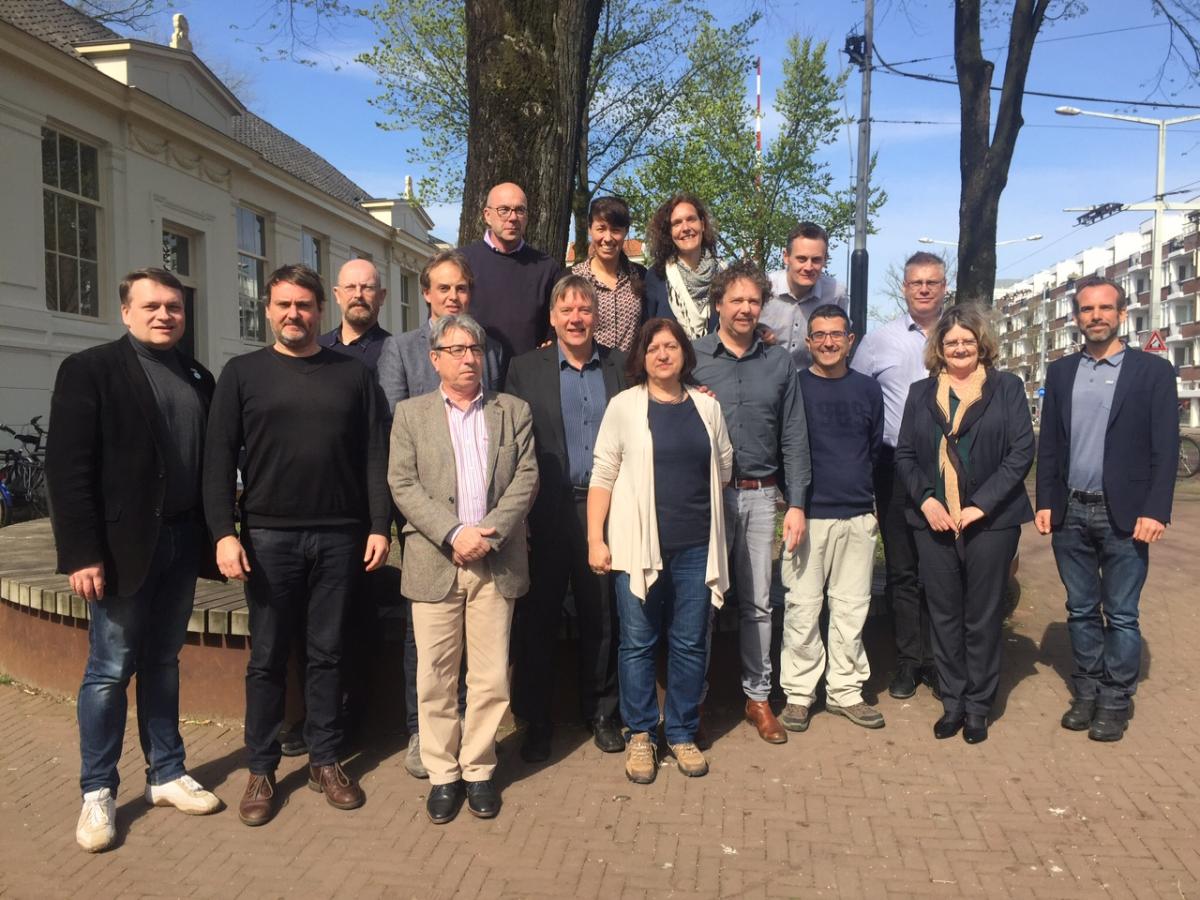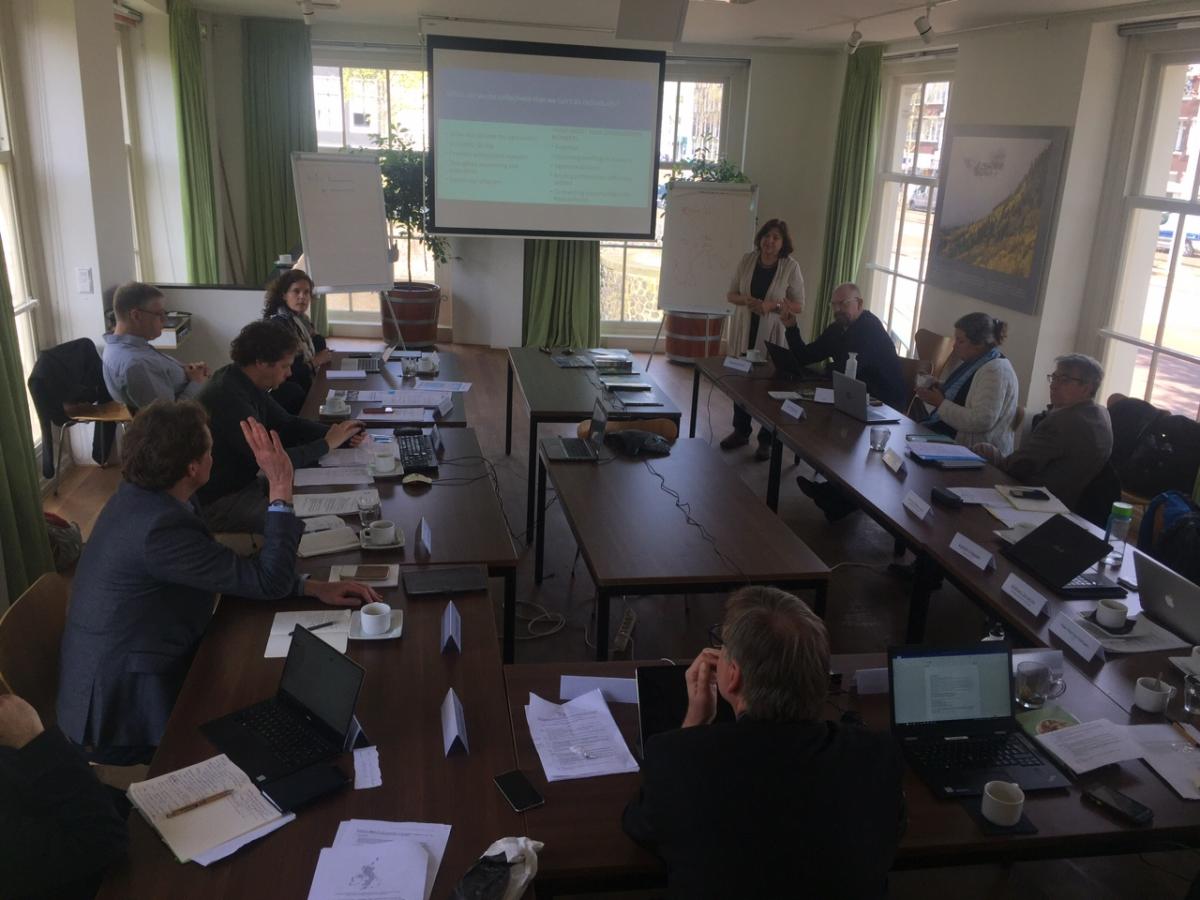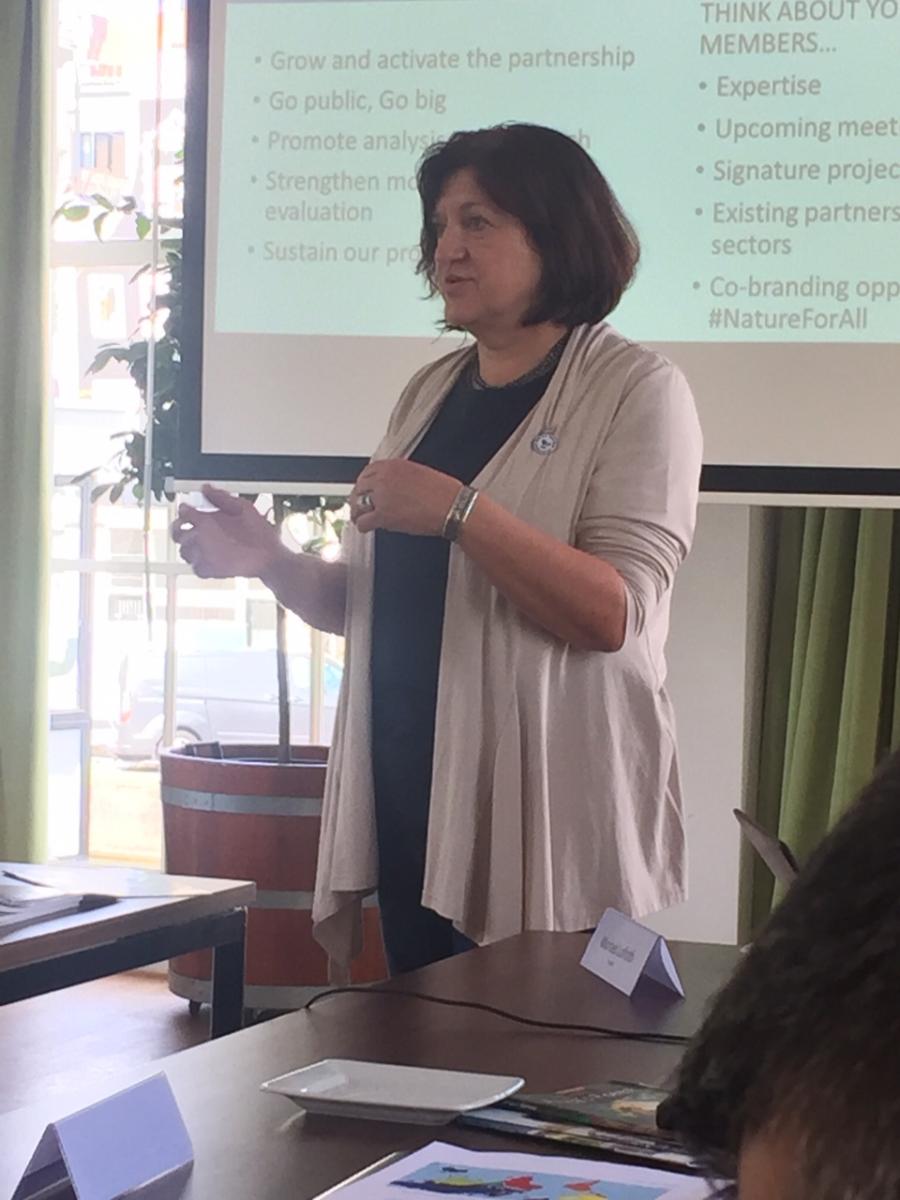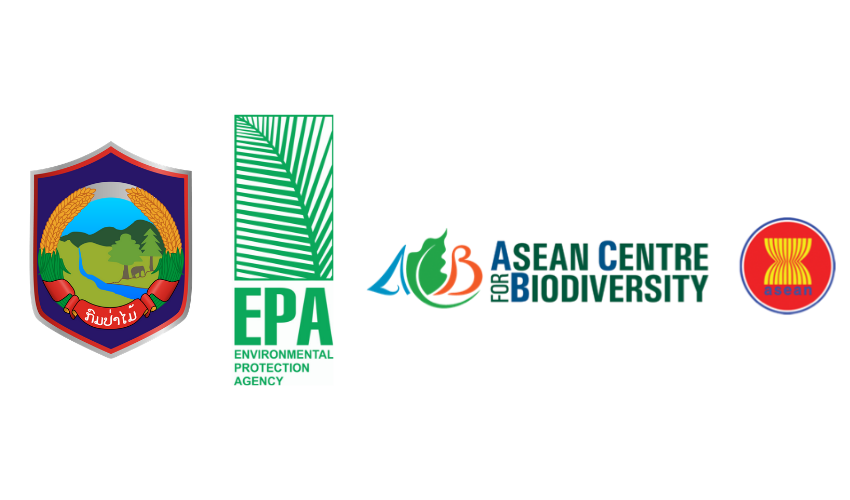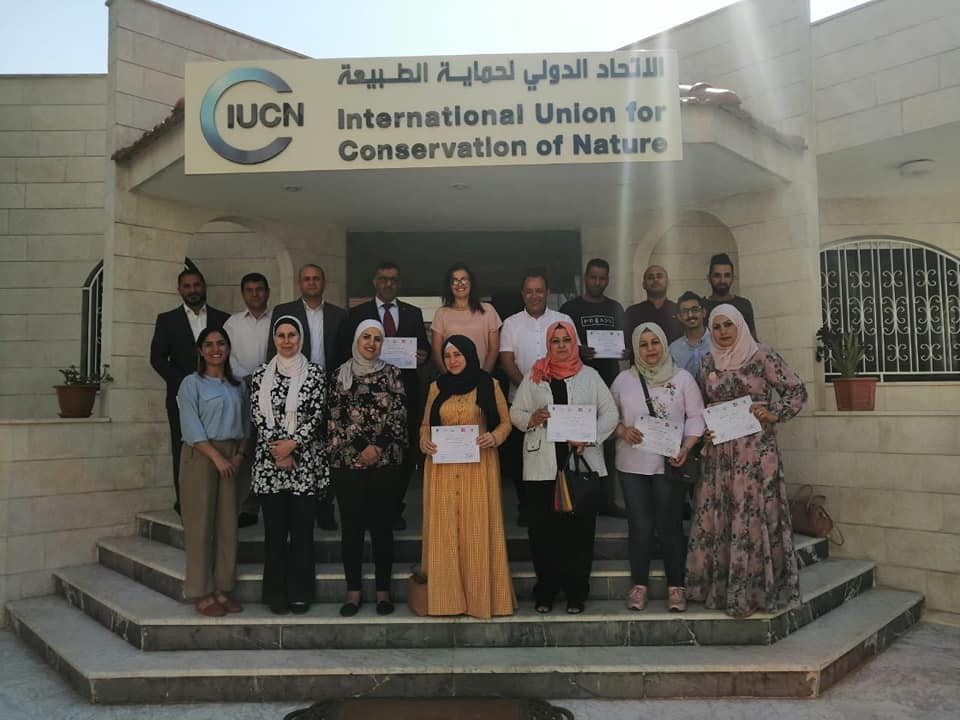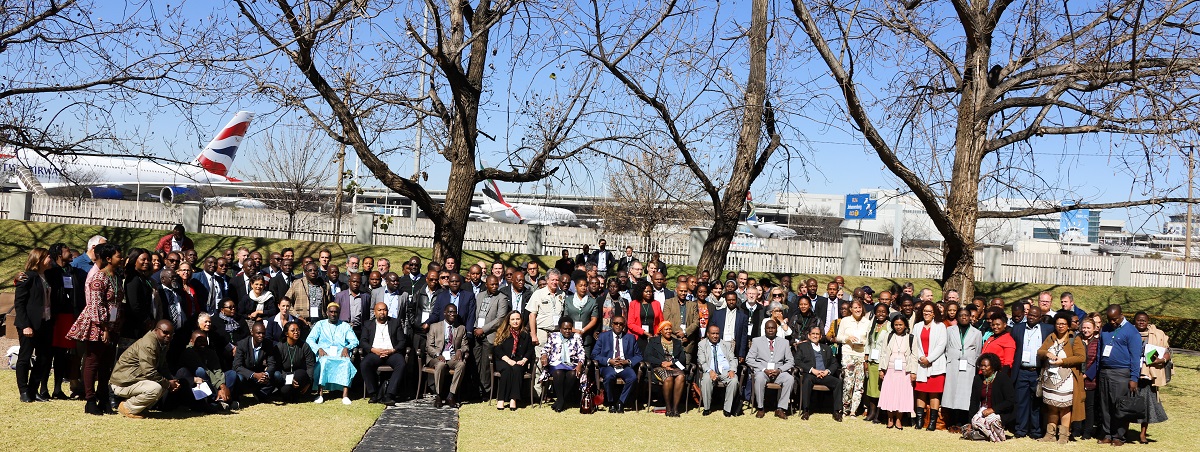CEC work and #NatureForAll were presented and discussed at the meeting of the IUCN WGNCD
IUCN WGNCD (Working Group on National Committee Development in Europe, North and Central Asia) Developing synergies among Members, Commissions and Secretariat were among the major topics at the meeting of the IUCN Working Group on National Committee Development, hosted by the IUCN National Committee Netherlands in Amsterdam on April 16 and 17, 2018.
Beautiful weather, blooming spring and lovely surroundings of the Royal Botanical Garden added inspiration to the open discussion in a group, representing National Committees and Focal Points of European countries, as well as four of the IUCN Commissions and both European offices. Two of the IUCN Councilors – Jan Olov Westerberg and Hilde Eggermont - attended the meeting. Several speakers - Antonio Herman Benjamin (Chair, IUCN WCEL) and Kristen Walker Painemilla (Chair, IUCN CEESP), Boris Erg (Director, ECARO) - joined the meeting over Skype.
CEC vision and developmental challenges in Europe and North and Central Asia were presented during the first day by Aleksei Zavarzin, the Regional Vice Chair for Eastern Europe and North and Central Asia and Peter Paul van Kempen, the regional Vice Chair for West Europe. How can we provide communication services for the Members and the Union and enable volunteer experts to deliver their know-how while doing so? This strategy fills two needs with one deed. When CEC members support IUCN constituents, the values and vision of the Commission is applied in projects operated by Member organization. The approach was positively accepted by the participants.
National Committees and their Members are keen to know more about CEC experts. What are their capacities and how can they be involved in projects? Think for instance of developing campaigns by IUCN Member organizations.
Issue of high importance is new findings on the way peoples’ brains work and how behavior can be influenced. Both research and practical instruments are needed in this respect, with a special request on communication to policy makers and changes in environmental education approaches. There is potential for a broader involvement of CEC individual experts of who work for Member organizations: bridging key actors of the Union is considered to be essential for achieving the One Programme goals.
The #NatureForAll movement was presented by CEC Deputy Chair Katalin Czippan. It was made clear that co-ownership by all involved and interested parties is key, especially by all IUCN Members. Can #NatureForAll help to engage audiences that currently have no interest or passion for nature? How can we provide value for poor people? Engaging discussions about these questions took place. The necessity of different approaches for different parts of the world and different audiences was stressed. The arising «threat» of urbanization and detached younger generations are to be seriously considered. A toolkit with different examples and experiences from all over the world would be of value in this respect.
Working sessions were followed by an excursion to the Oostvaardersplassen wetlands – an outstanding «laboratory» where wilderness developed on man created land. Several management and communication challenges were discussed.
The Amsterdam meeting took the next step towards an Interregional Committee for Europe, North and Central Asia. This committee would help to overcome consequences of the East-West political border line. Next face to face meeting was announced to be held in Prague on September 24-25th 2018. The Prague meeting will be attended by members from Eastern Europe, North and Central Asia, fostering collaboration with Eastern partners and their active involvement into the Union development. This will empower Commissions, National Committees and IUCN Members at the same time, providing a stronger foundation for the conservation of nature. And that’s what we all strive for!
About the Author
Dr. Alex Zavarzin currently is vice-rector and press-secretary of the St. Petersburg State University – the first University established in Russia since then pioneering in development of education and research in the country. Dr. Zavarzin is responsible for University consolidation, communication and promotion, especially in multi- and interdisciplinary research and development with “biodiversity, environment and sustainable development” being one of the six key priority areas of SPSU. Previously, he combined university professorship with service as vice-dean to the school of biology and soil sciences of SPSU, and late vice-provost for biology, geography, geoecology and soils.
